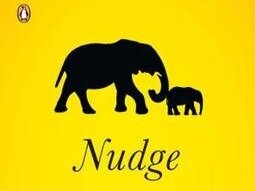
Behavioral Science
“Having an understanding of the human mind and how it functions is probably the single most important thing anyone who wants to be successful can do”
- Spencer Fraseur
Behavioral science, any of various disciplines dealing with the subject of human actions, usually including the fields of sociology, social and cultural anthropology, psychology, and behavioral aspects of biology, economics, geography, law, psychiatry, and political science. The term gained currency in the 1950s in the United States; it is often used synonymously with “social sciences,” although some writers distinguish between them. The term behavioral sciences suggests an approach that is more experimental than that connoted by the older term social sciences.
Class Resources
Nudge
Nudge: Improving Decisions about Health, Wealth, and Happiness is a book written by University of Chicago economist Richard H. Thaler and Harvard Law School Professor Cass R. Sunstein, first published in 2008. The book draws on research in psychology and behavioral economics to defend libertarian paternalism and active engineering of choice architecture
Using Behavioral Science
What's a proven way to lower your energy costs? Would you believe: learning what your neighbor pays. Alex Laskey shows how a quirk of human behavior can make us all better, wiser energy users, with lower bills to prove it.
Behavioral Science & Food
We’re talking about the psychology of decision-making, drinking “Al Gore’s Kool-aid” and “moo-ving away from beef and cheese.” We’re looking at how to help people make subtle shifts toward more climate-friendly choices—sometimes without even realizing it.
The Science of Behavioral Science
Article 1
Text
Article 2
Text




